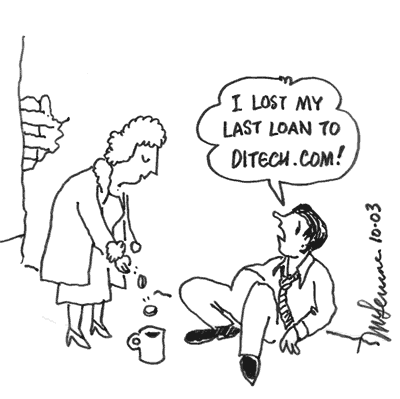|
 HOT ISSUE HOT ISSUE
The case for government
By
Andy Brack
SC Statehouse Report
| |
|
ALSO
THIS WEEK
McLEMORE'S
WORLD: Loan-ly in America cartoon
FEEDBACK:
FEEDBACK
POLICY
We encourage
your feedback. If you'd like to respond to something in SC
Statehouse Report, please send us an e-mail. We reserve
the right to edit for length and clarity. One submission allowed
per month. Please keep your comment to 250 words or less:
feedback@statehousereport.com
Recent
feedback
|
OCT.
12, 2003 - - In California this week, voters elected an actor to
be governor in large part because they wanted to send the message
they didn't trust the incumbent governor or government.
Across the country, people's trust of state government has dropped
to the lowest levels since Gallup started measuring in 1972, according
to an Oct. 6 poll. It showed almost half of Americans - - 46 percent
- - had no or very little trust and confidence in state government
to handle a state's problems.
In South Carolina, it's a sure bet that more than half of the state's
citizens have low confidence in government. They don't trust politicians,
many of whom screech about how bad things are but do little to make
real progress. People believe their taxes are too high, although
they have a low-to-moderate tax burden in various rankings of the
states. And they hear a constant media drumbeat from talking heads
who will bash government and politicians in a skinny minute.
So with all of this dislike of government, what's the alternative?
No government? Chaos?
Back in 1947, Winston Churchill noted, "Many forms of Government
have been tried, and will be tried in this world of sin and woe.
No one pretends that democracy is perfect or all-wise. Indeed, it
has been said that democracy is the worst form of government except
all those other forms that have been tried from time to time."
A few years ago, one of my students at the College of Charleston
complained about government and taxes. We talked about it for awhile,
which led to a question to him: "If I were king and could issue
an edict that you no longer had to pay any taxes, would you accept
the edict and live with the consequences?" The student immediately
and enthusiastically replied he would accept.
Then I asked him to consider what would happen to his quality of
life if he didn't pay taxes and couldn't participate in the benefits
brought by those taxes levied by government to provide services.
He couldn't, for example, drive on state-paid highways. He couldn't
go to the beach at Isle of Palms by crossing the government-paid
bridges over the Cooper River. He couldn't check out books at the
library, get the city to pick up his trash, or have fire and police
protection. If he moved to the country, he wouldn't be able to get
electricity from the state-backed power utility. In fact, he wouldn't
even be able to attend the College of Charleston, because it is
a state institution.
I asked the student to consider these and many other things. Then
I asked him about the quality of his life if he were exempt from
taxes. He sheepishly admitted it wouldn't be much fun.
Too many Americans want to pay no taxes but get all of the benefits
of being American. They want access to the best health care system
in the world, one of the best highway systems, the best capital
markets, the best jobs and the best food supply. They want the best
for themselves and their children - - and who wouldn't?
But instead of accepting taxes as the price for democracy, they
complain and blame.
It's time for people to stand up for government. Yes, it needs
to be more efficient and effective. Yes, it should be more accountable.
Yes, it should perform better. But it also shouldn't be barbecued
at every corner. Government isn't the enemy. It's the civilizing
component of our democracy.
 McLEMORE'S WORLD McLEMORE'S WORLD
Loan-ly in America
This week's cartoon by our Bill McLemore:

 FEEDBACK FEEDBACK
10/6: Hollings will still be able to learn
To the editor:
"I have been introduced to your column and am
reading some in the archives. In your 5
August 2003 column, you quoted Senator Hollings as saying, "My
wife, Peatsy, helped a lot of students when she was a teacher."
As one of Miss Liddy's students from St. Andrew's Parish High School
in the mid-60s, I can fully agree with the Senator. Miss Liddy was
one of the most challenging teachers I have ever had. Her love of
US government, history, and especially politics motivated her students
to understand our wonderful country and its unique place in the
world. When the Senator is retired, he will still be able to learn
from Miss Liddy.
-- Dale L. Theiling, Charleston, S.C.
9/28: Absence of corrections
officers will hurt too
To the editor:
"Just as the absence of DNR officers (Hot
Issue, 9/28) may have contributed to boating fatalities, so
will the lack of Correctional Officers in the prison system lead
to more violence and possibly fatalities. Your assessment is correct:
presence of officers is a deterrent. The cutbacks in the Department
of Corrections ought to be a cause for concern for all South Carolinians.
-- Francis X. Archibald, Hanahan, S.C.
###
|





